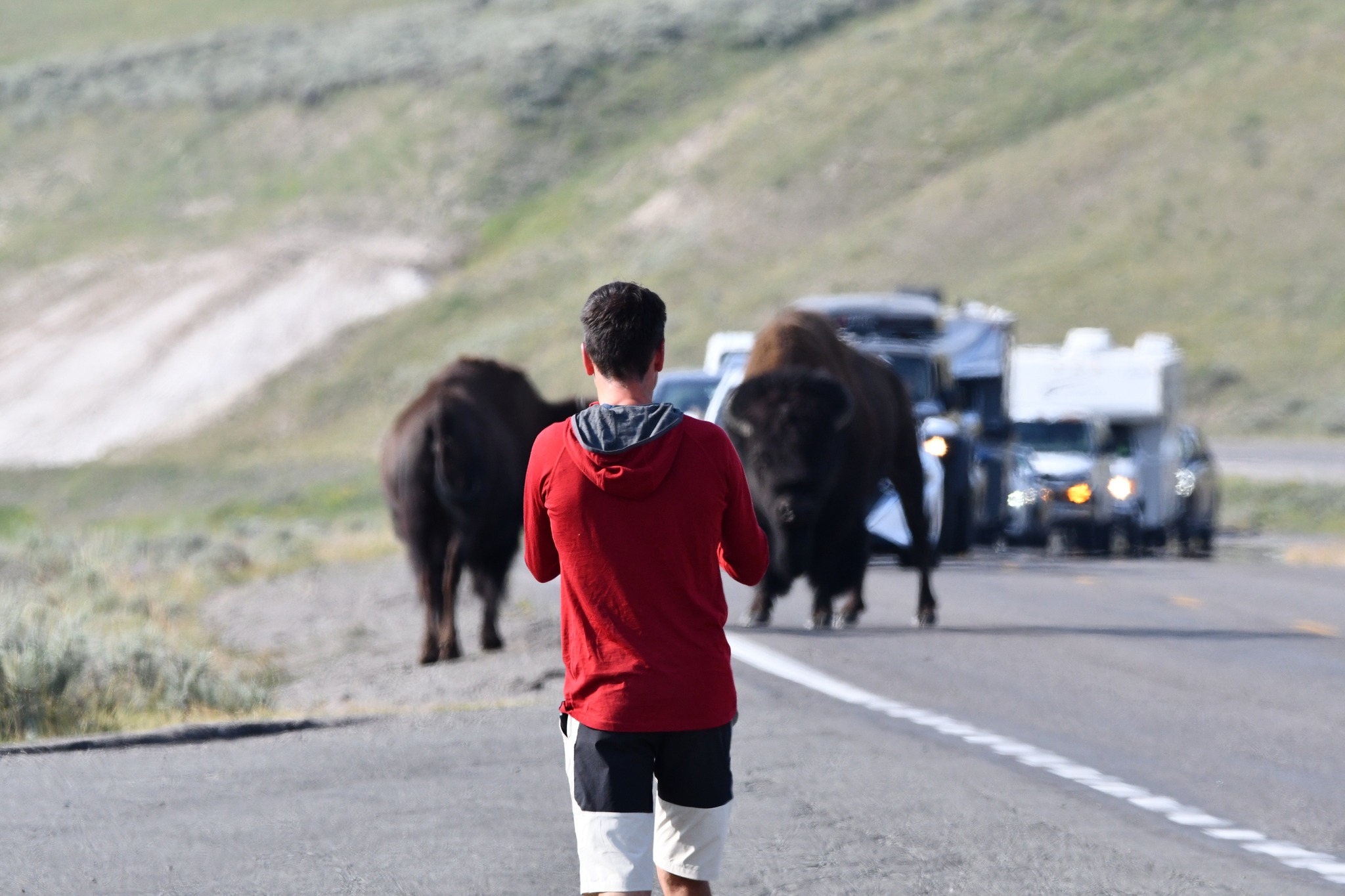The Jackson Hole Travel & Tourism Board just released a new open-source photo filter for smartphone users called “Selfie Control.” The aptly named photo filter, which can be found on Instagram, was designed to help people maintain safe distances when viewing and photographing wildlife.
The benefits go both ways, of course, by also helping protect wild animals from “tourons.” These are the extra-special nitwits you see in national parks and other wild spaces who lose all common sense and self-control when they see an opportunity to snap a selfie with a wild critter.
Whether it’s out of ignorance or sheer disrespect to the animals, these incidents occur every year with regularity in Grand Teton and Yellowstone National Parks. (There’s even an Instagram page devoted strictly to the tourons of Yellowstone.) The parks are also hotspots for experienced wildlife photographers who understand the importance of giving wild animals their space. This makes the Jackson Hole area a prime location for testing the photo filter, especially as crowds flock there during the summer months.
However, the software’s designers saw applicable uses for it all over the country, from nearby Rocky Mountain National Park to the Florida Everglades, where some tourists have been caught hosting impromptu photo shoots with their kids standing next to alligators. So, they also made a digital toolkit for anyone who wants to update the photo filter with wildlife species found in their neck of the woods
“It’s our hope that the Instagram filter can allow other wild destinations that are home to wildlife to keep their visitors and wildlife safe as visits are sure to increase during the summer travel season, Jackson Hole Travel & Tourism Board executive director Crista Valentino said in a news release. “We want to see the numbers of stunning wildlife images on the rise and incidents and accidents steeply decline.”
The Selfie Control filter comes preloaded with safe viewing distances for the iconic species found around Jackson, Wyoming — namely bears, bison, and moose. Users simply download the Instagram filter and then point their phone at the animal they’re viewing. An icon of the animal’s outline will then appear on the screen. If the animal the user is photographing appears larger on the screen than the icon, that means the user is in the danger zone and should back up for safer viewing.
The National Park Service provides guidelines for visitors regarding safe distances for wildlife viewing. The general rule of thumb is to give all wildlife at least 25 yards of space and bump that distance up to 100 yards for predators like bears. However, unless you’re experienced at estimating range with just your eyeballs, accurately gauging distance without a rangefinder can be tricky.
“That’s why we created the Selfie Control filter — so visitors can easily gauge proper distance for their safety, as well as the wildlife they are sharing space with, while still allowing for a memorable shot,” Erik Dombroski, chair of the Jackson Hole Travel & Tourism Board said in a news release.
Read Next: Yellowstone Officials Identify, Fine Idiot Who Picked Up Bison Calf
National Park touron season literally kicked off in April this year when an Idaho man booted a bison in a drunken moment of lunacy. He somehow got away unscathed. Others haven’t been so lucky, and some have even been gored by the massive animals while still holding onto their cell phones.
According to a 2018 study published in One Health, bison injure more people in Yellowstone National Park than any other species of wildlife. The study also noted that nearly half (48 percent) of all bison-related injuries in the park occurred while people were attempting to photograph the animals.
Read the full article here




